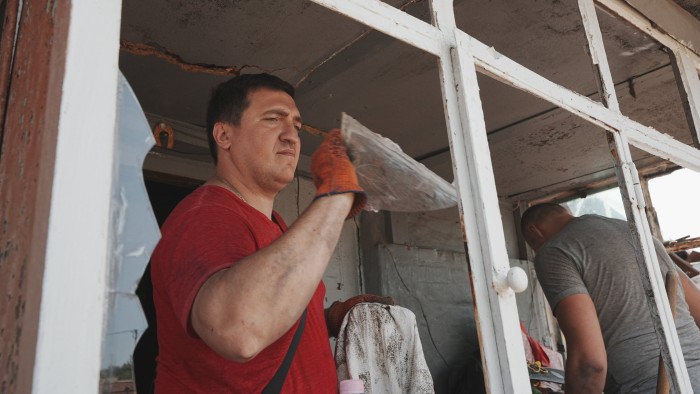Unlock the Editor’s Digest for free
Roula Khalaf, Editor of the FT, selects her favourite stories in this weekly newsletter.
Ending wars is hard: 40 per cent of conflicts peter out without a formal agreement, according to the Center for Strategic and International Studies. Yet the glimmers of progress on a strategy for postwar Ukraine provide a cue for investors to scope out companies that could benefit from the country’s reconstruction.
More than three years in, Russia’s full-scale invasion of the country has reaped a grim toll of death and destruction. The total bill for reconstruction and recovery weighs in at $524bn over the next decade, according to estimates by the Ukrainian government and multilateral institutions.
The money will come from the government and international donors, including the EU, and institutions such as the World Bank. The private sector, having already engaged in repair and other projects, could invest perhaps $170bn in the country, or one-third of the total bill, according to the Rapid Damage and Needs Assessment, which is jointly produced by the Ukrainian government and other institutions.
Comments on earnings calls suggest 100-plus companies already have an eye on opportunities in the country. Rebuilding infrastructure — prioritising energy, transport and housing — requires truckloads of materials and plenty of kit builders, as well as designers and engineers.
Ukraine could also prove fertile ground for renewable energy companies, many of whom have had a rough ride on more familiar terrain. One reason for the yawning discrepancy between the cost of damage and that of reconstruction is the need to build back better and greener. That means, say, wind energy and the replacement of multi-family buildings destroyed in the war with more modern housing.

Panmure Liberum, a UK brokerage, reckons European companies will benefit disproportionally. That reflects both the source of much of the funding and their experience meeting regional safety and environmental standards.
Proximity is another factor. Building materials such as cement are heavy and cheap; there is no sense shunting them long distances, so companies with operations either in Ukraine itself or nearby eastern European countries are more likely candidates.
Hence ArcelorMittal, a steelmaker with a Ukrainian subsidiary, is among those increasing production in Ukraine, while Ireland’s Kingspan Group, which makes insulation and building envelopes, is erecting a €280mn building materials manufacturing campus in the country. Other steel producers that may get a look-in include Germany’s Thyssenkrupp and Austria’s Voestalpine.
Vestas Wind Systems is selling wind turbines for a wind park in Ukraine, while France’s Schneider Electric is looking at grid modernisation and smart infrastructure. Both are partnering with DTEK, a private investor specialising in energy.
Risks are inherently abundant. After three years of war, labour costs are high, inflation is rampant and insurance costs — a vital component of any project given the possibility that conflict may flare up again — swell the bill. Early work will be slow and costly as infrastructure is resurrected.
But some funding for reconstruction has been secured, and a chunky pipeline of projects is already under way. While the process to end the Ukraine war is anything but straightforward, it is at least showing signs of life. Betting on war proved lucrative as defence stocks rallied. Time perhaps to give peace a chance.
louise.lucas@ft.com

